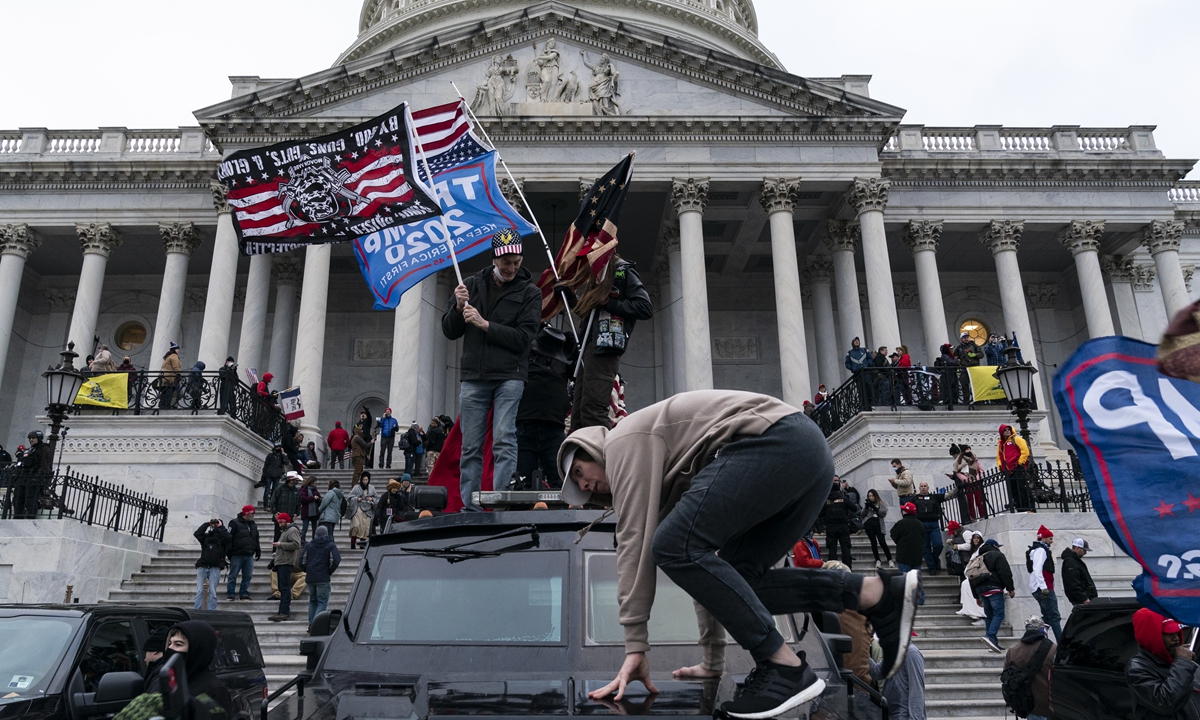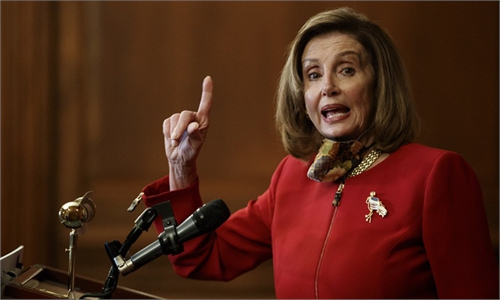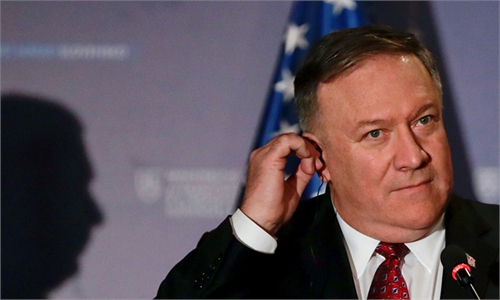
Supporters of US President Donald Trump protest outside the US Capitol on Wednesday, in Washington, DC. Demonstrators breached security and entered the Capitol as Congress debated the 2020 presidential election Electoral Vote Certification. Photo: AFP
After US President Donald Trump's supporters stormed the Capitol on January 6, some Chinese netizens have joked about the US ongoing partisan struggle: Why can't the US have two presidents? Others said there can be two United States: USA and USB, just like South Korea and North Korea.
After all, those are netizens' remarks. More than 20 years ago when the "China collapse" theory prevailed in the US, it was a "well-founded" argument by professional scholars, while the "US collapse" theory in China now is not yet supported by systematic research.
I don't believe that the US is going to collapse anytime soon. Swiss sociologist Andreas Wimmer said in his book Nation Building: Why Some Countries Come Together While Others Fall Apart that political integration and national identification are two sides to the coin of nation building. Given such logic, the possibility that the US will collapse cannot be ruled out if it goes on in chaos.
There are at least two little-known arguments. One is that the violence surrounding US Congress is getting worse.
In 1856, US Representative Preston Brooks from South Carolina used a walking cane to attack Senator Charles Sumner from Massachusetts over the issue of slavery. In 1915, Eric Muenter, a Harvard professor, blew up the reception room of the US Senate chamber in the Capitol building under the name of "a call for peace." No one was injured. In 1932, some 25,000 World War I veterans besieged the Capitol for weeks, many of them died. On March 1, 1954, four Puerto Rican separatists broke into the House of Representatives and wounded five members of Congress. In 1983, the north wing of the Capitol building was blown up. In 1998, a gunman entered the Capitol, killing two police officers.
It is clear that the Capitol chaos of January 6 was more extreme and devastating with larger scale than any one in history, and it was tied to the incitement of a sitting president. Behind the rising violence in Congress lies the US' waning political unity.
According to a survey of the Pew Research Center, 94 percent of Democratic and 92 percent of Republican lawmakers became more ideologically consistent in 2014, and, as a result, further from one another. By contrast, in 1994, the two parties could come to better agreements on matters and had overlapping ideas.
What one party agrees with is usually what the other party is against. The two parties have slipped from the politics of consensus to the politics of confrontation. There is already speculation that the confrontation could degenerate into a new civil war.
Second, the Americans' sense of identity with democracy has declined remarkably. Yascha Mounk, a Harvard lecturer, and Roberto Stefan Foa, a political scientist at the University of Melbourne in Australia, jointly published a study on attitudes toward democracy in 2016.
It shows that nearly 75 percent of those born in the 1930s in the US think democracy is essential, while only around 30 percent for those born in the 1980s.
Another survey was more interesting. When asked whether "having a democratic political system" is a "bad" or "very bad" way to "run this country" in 1995 and 2011 respectively, the percentage of Americans believing this idea rose in every age group.
Nonetheless, Chinese people have a long and romantic vision of the US. They tend to attribute many positive sides of this country, such as the public's kindness, social order, economic growth, racial harmony and the rise of the country, to democracy.
But at present, democracy is aging and the US is going backward. The clash of two Americas has become even more evident. The majority of Chinese people now have comprehensive knowledge of the US. They believe this country will continue to be the most powerful country in the long term. Meanwhile, they think the US will no longer deserve much respect as it once enjoyed.
To Chinese citizens, the linchpin is not the "US collapse" theory, but a lesson instead on US shortcomings. The US' decline illustrates an important principle that no systems can work well forever. Without reforms, any system will degrade biologically.
The author is professor and executive dean of Chongyang Institute for Financial Studies at Renmin University of China. wangwen2013@ruc.edu.cn



